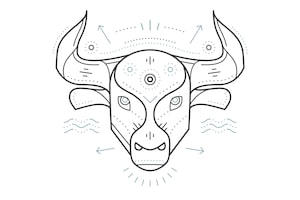
Illustration by THE GLOBE AND MAIL
Expand your mind and build your reading list with the Books newsletter. Sign up today.
- 📖 Fiction
- 📖 Non-fiction
New this winter
Some of the hottest topics of the past year make their way to shelves this season: eldercare; mob mentality; press freedom; quests for connection, identity or escape; race and societal injustice. And if you’d rather leave all that stuff behind while you’re losing yourself between the covers of a book this winter, there are page-turning adventures and flights of magic and fantasy too.
Read more: The books that Globe Arts writers and editors have on their reading lists for 2021
Fiction
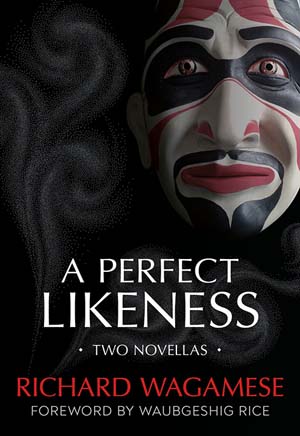
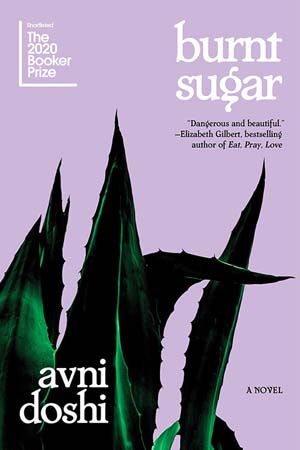

A Perfect Likeness, Richard Wagamese (Orca Book Publishers, March); Richard Wagamese Selected, edited by Drew Hayden Taylor (Douglas & McIntyre, May)
The posthumous publishing career of the beloved Ojibwe author (Indian Horse, Medicine Walk) continues with two previously published novellas presented with a foreword from Waubgeshig Rice (Moon of the Crusted Snow). Later this spring, a new collection of nonfiction edited by Drew Hayden Taylor, including many previously unpublished essays, will also hit shelves.
Burnt Sugar, Avni Doshi (Overlook Press, January)
When a woman takes in the dementia-suffering mother who failed her as a child she confronts the task of caring for a woman who failed to care for her. This debut was shortlisted for the 2020 Booker Prize (ultimately won by Douglas Stuart’s Shuggie Bain) but only now becomes available in Canada.
Charity, Keath Fraser (Biblioasis, January)
Shorter non-fiction books emerged as a publishing trend last year, including from Windsor, Ont.-based independent Biblioasis and their Field Notes series (of which Rinaldo Walcott’s On Property, issued this January, is the latest). Readers in the market for a fiction short might enjoy this comic novella (just 128 pages) in which a stepmother navigates the complex relationships between her husband, his ex and their daughter.
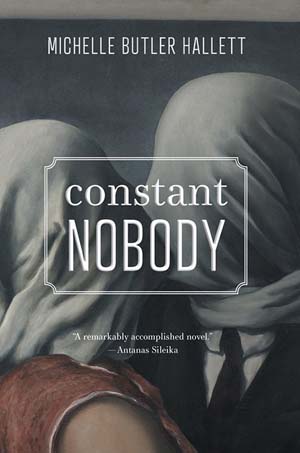
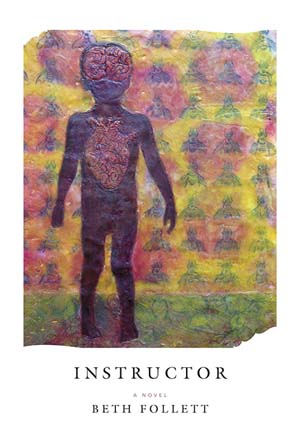

Constant Nobody, Michelle Butler Hallett (Goose Lane, March)
A British intelligence agent and Soviet secret police agent find their fates bound together in a confusing web of loyalty, love and fear. In 1937 in a Basque Country embroiled in the Spanish Civil War, a British intelligence agent and Soviet secret police agent find their fates bound together. In the ensuing web of loyalty, love and fear, the stakes are high. How far will one person go to protect another?
Instructor, Beth Follett (Breakwater Books, February)
A woman is drawn to rent a cottage on the lake where her husband died, where she will meet three people that influence her life. Years later, she finds herself alone with one of the three on the day of the Northeast blackout.
Klara and the Sun, Kazuo Ishiguro (Knopf Canada, March)
In the author’s first novel since winning the Nobel Prize in Literature, an “Artificial Friend” named Klara waits on a store shelf, observing human behaviour, until the day a lonely, troubled family takes her home. In the vein of Never Let Me Go, this is a dystopian tale about artificial intelligence and the human heart.

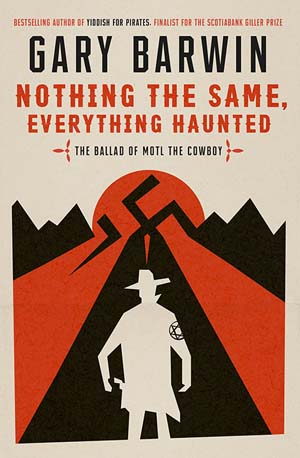
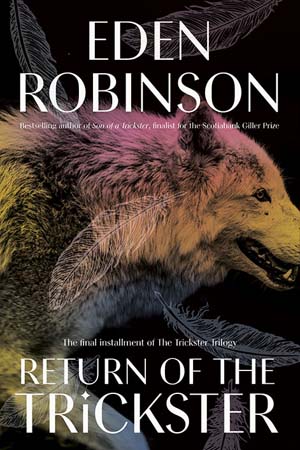
Kill the Mall, Pasha Malla (Knopf Canada, February)
In this madcap work of horror-fantasy, “the local mall” becomes a setting for a series of strange, phantasmagorical, even sinister events, as a man offered a “residency” in a mall after writing a letter singing its praises discovers the mall is not the “temple of consumer bliss” he had believed it to be.
Nothing the Same, Everything Haunted: The Ballad of Motl the Cowboy, Gary Barwin (Random House Canada, March)
In this madcap, picaresque western with a twist, a middle-aged Jewish man with cowboy fantasies embarks on an eccentric trans-Europe quest after the 1941 Nazi invasion of Lithuania. His goal: to get back at Hitler by procreating. But first, he needs to (literally) find his balls.
Return of the Trickster, Eden Robinson (Knopf Canada, March)
The Trickster Trilogy, now critically acclaimed both in print and on screen, concludes with Jared’s return to Kitimat, B.C., and a convergence of magic dark, mischievous and downright power hungry. Par for the course, perhaps, when your mom is a witch and your dad is a trickster. Oh, and the magic you’ve unleashed leaves no doubt that, of all of Wee’git’s 535 children, you’re the one who turned out to be a trickster too. Jared’s just trying to make it through life as a teenager and use his abilities to make the world a kinder, safer place, but the magic forces close to him have other ideas. His ogress aunt is hungry for his powers, and his mom, Maggie, will wage war to protect him.
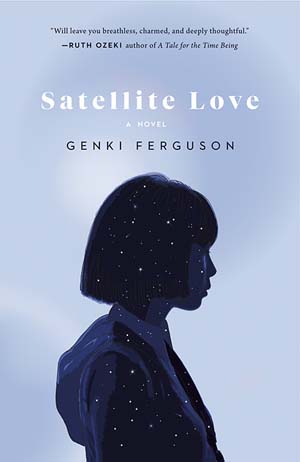
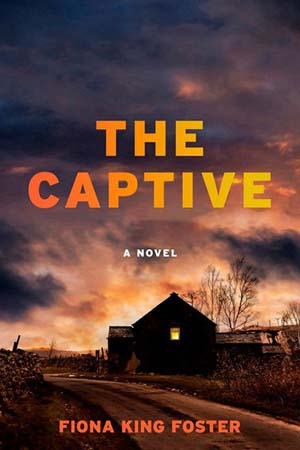
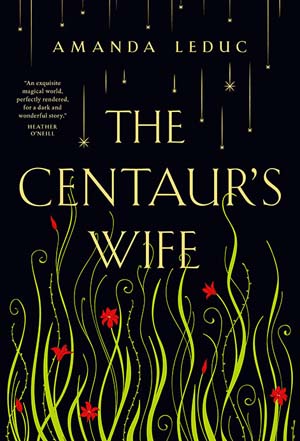
Satellite Love, Genki Ferguson (McClelland & Stewart, March)
On the eve of the new millennium in Japan, 16-year-old Anna Obata exchanges gazes with LEO (the Low Earth Orbit satellite) and thus summons him down to earth. This debut explores loneliness, alienation and the limits of devotion through two unlikely companions’ search for connection.
The Captive, Fiona King Foster (HarperCollins, January)
Praised by novelist Claudia Dey as “an Offred traversing Cormac McCarthy’s hazardous dreamscapes,” the protagonist of this debut noir, set in a secessionist rural state cut off from urban centres, embarks on a thrilling expedition with her family to deliver a fugitive.
The Centaur’s Wife, Amanda Leduc (Knopf Canada, February)
From the author of the critically acclaimed Disfigured: On Fairy Tales, Disability, and Making Space, comes a novel woven with fairytales of the author’s own devising. A magical story about what happens when we ignore the natural world, this is a devastating but ultimately redemptive fable for our uncertain times.
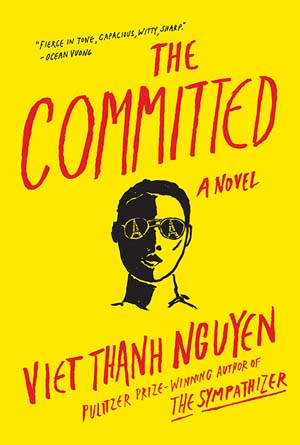
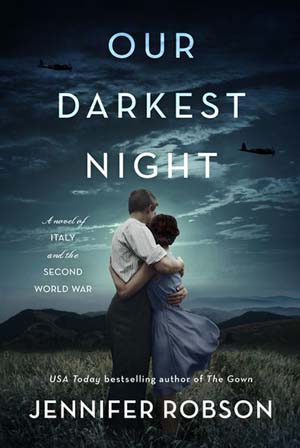
The Committed, Viet Thanh Nguyen (Grove/Atlantic, March)
This story of wits, resourcefulness and betrayal – the sequel to Nguyen’s 2016′s Pulitzer Prize-winning novel – follows the unnamed Sympathizer to Paris in the early 1980s, where he embraces capitalism in one of its purest forms: drug dealing.
Our Darkest Night, Jennifer Robson (William Morrow, January)
The latest from the internationally bestselling author of The Gown follows the fortunes of a young Jewish woman posing as the Christian wife of a young farmer she has just met in a bid to survive the Holocaust in 1943 Italy.
Non-fiction
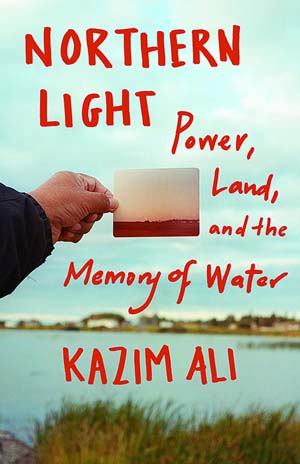
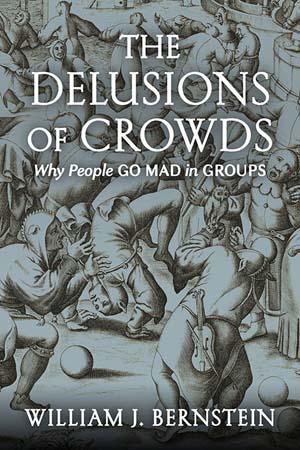
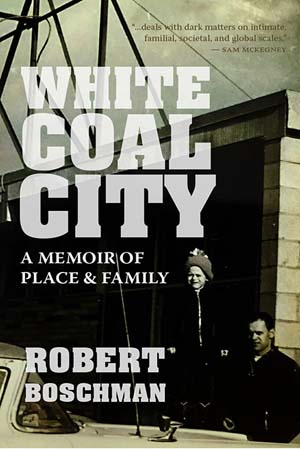
Northern Light: Power, Land, and the Memory of Water, Kazim Ali (Goose Lane, March)
The author returns to northern Manitoba on the trail of childhood memories of his father’s work on a hydroelectric dam. His return as an adult is both an eye-opening account of contemporary Indigenous life and a poignant reflection on the concepts of home and identity.
The Delusions of Crowds: Why People Go Mad in Groups, William J. Bernstein (Grove/Atlantic, February)
“No matter how misleading the narrative,” Berenstein writes, ”if it is compelling enough it will nearly always trump the facts.” As we navigate social media bubbles of likeminded opinion in search of “the truth,” this examination of five centuries of contagious narratives shows us that this modern malaise is in fact no modern phenomenon.
White Coal City: A Memoir of Place and Family, Robert Boschman (University of Regina Press, January)
In this multi-generational story of life in Prince Albert, Sask., the author recalls growing up in a hockey-obsessed white settler town, sandwiched between a residential school and a jail. He examines the harms of colonialism and its reach to his own family, whose story he gently shares through personal correspondence and newspaper clippings.
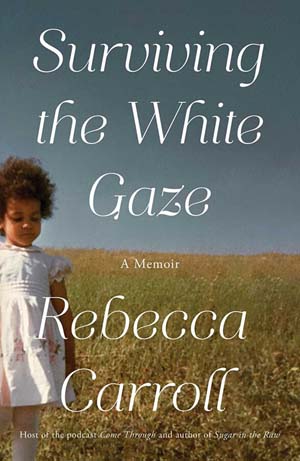

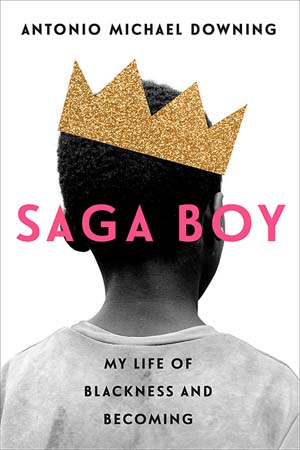
Surviving the White Gaze: A Memoir, Rebecca Carroll (Simon & Schuster, February)
Adopted at birth and raised by hippie parents as the only black person in a rural New Hampshire town, podcast host and cultural critic Carroll describes her decades-long journey and ultimate arrival at “the complicated depths of my own blackness” in this powerful memoir.
Crossroads: My Story of Tragedy and Resilience as a Humboldt Bronco, Kaleb Dahlgren (HarperCollins, March)
From a survivor of the devastating junior hockey team bus crash that left 16 dead and moved millions to leave hockey sticks by their front doors and donate money to the families affected, this inspiring story of a young man’s lifelong triumphs over adversity promises to be a tough but life affirming read.
Saga Boy: My Life of Blackness and Becoming, Antonio Michael Downing (Penguin Canada, January)
The author – also known as musical artist John Orpheus – shares stories of his messy family, a childhood in Trinidad, an adolescence transplanted to an all-white, Northern Ontario town, and a search for belonging that leads him back to embrace his rich heritage. A companion album of the same name is forthcoming.
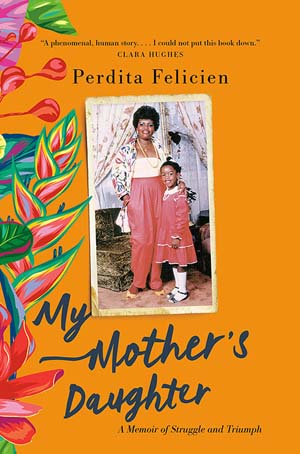
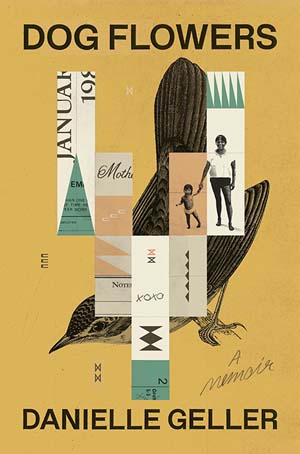
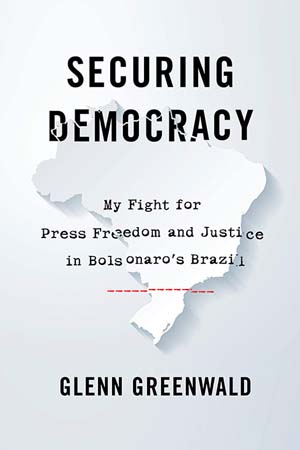
My Mother’s Daughter: A Memoir of Struggle and Triumph, Perdita Felicien (Doubleday Canada, March)
In this affecting memoir about a mother-daughter bond, two-time Olympian Felicien recounts the story of her mother Catherine’s journey from St. Lucia to Canada in the 1970s and the power of a parent’s love to recognize and nurture a child’s gifts whatever hurdles lie in their way.
Dog Flowers: A Memoir, Danielle Geller (One World, January)
This memoir tells two parallel stories: of a woman who left her Navajo nation at 19, and of her daughter – the author – who, after the mother’s death years later returns home and tells, through memory, narrative and archival documents, the mother’s story.
Securing Democracy: My Fight for Press Freedom and Justice in Bolsonaro’s Brazil, Glenn Greenwald (House of Anansi, April)
A rallying cry for the importance of independent journalism to hold governments to account, the latest book from the author of No Place to Hide: Edward Snowden, the NSA, and the U.S. Surveillance State takes readers on a journey through corruption and wrongdoing in Brazilian politics, and the explosive revelations that placed the author – who has lived in Brazil since 2005 – in significant personal danger.
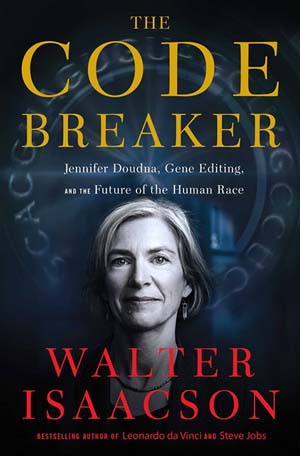
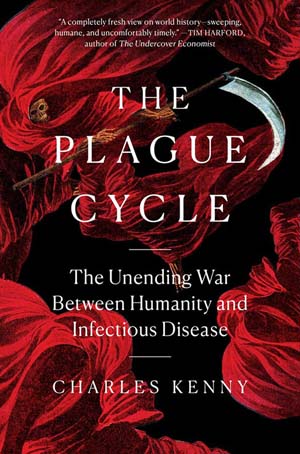
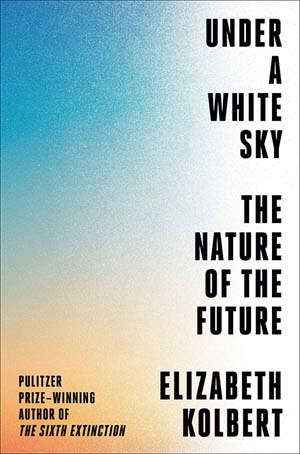
The Code Breaker: Jennifer Doudna, Gene Editing, and the Future of the Human Race, Walter Isaacson (Simon & Schuster, March)
Renowned biographer Isaacson (Steve Jobs, Leonardo da Vinci) presents a gripping account of 2020 Nobel Prize-winner Jennifer Doudna’s revolutionary discovery of a tool that can edit DNA, and the moral conundrums that swirl around it.
The Plague Cycle: The Unending War Between Humanity and Infectious Disease, Charles Kenny (Simon & Schuster, January)
In this colourful history that will appeal to readers of Yuval Noah Harari or Steven Pinker, Kenny – a writer-researcher at the Center for Global Development – demonstrates that illness, the hot topic of 2020/21, has defined civilization for millennia, and as climate and populations fluctuate, greater global cooperation is needed toward sustainable health.
Under a White Sky: The Nature of the Future, Elizabeth Kolbert (Crown, February)
The Pulitzer Prize-winning author of The Sixth Extinction examines how the interventions that have imperilled our planet might also represent the path to salvation. How, she asks, might we again change nature, but this time, to save it?
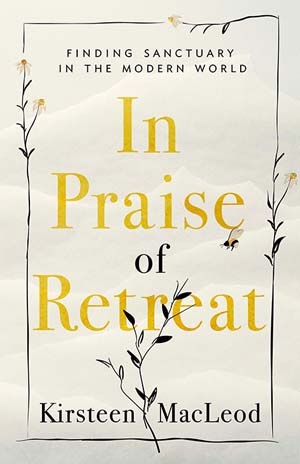
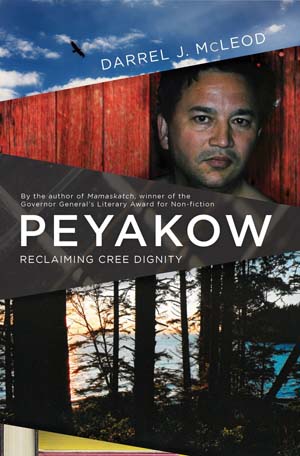
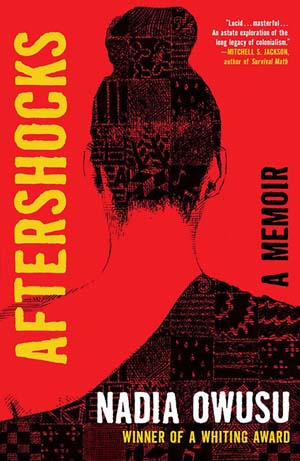
In Praise of Retreat: Finding Sanctuary in the Modern World, Kirsteen MacLeod (ECW Press, March)
Celebrate the possibility of inner adventure! In a year when we’ve been forced to retreat from so many things, there is still much to be said for the positive effects of disengaging in a more meaningful way, a practice that the author (a yoga teacher) argues is as basic a human need as to be social.
Peyakow: Reclaiming Cree Dignity, A Memoir, Darrel J. McLeod (Douglas & McIntyre, March)
In the sequel to his Governor General’s Literary Award-winning memoir, Mamaskatch, which dealt primarily with the author’s childhood, McLeod recounts his journey through trauma, abuse and separation to professional success. The title is borrowed from the Cree word for “one who walks alone.”
Aftershocks: A Memoir, Nadia Owusu (Simon & Schuster, January)
A deeply felt story of identity, this debut memoir in the vein of The Glass Castle or Don’t Let’s Go to the Dogs Tonight retreads the author’s childhood – spent in constant motion due to a Ghanaian father’s work as a United Nations official – and young adulthood, navigated in New York without parents and searching for identity.
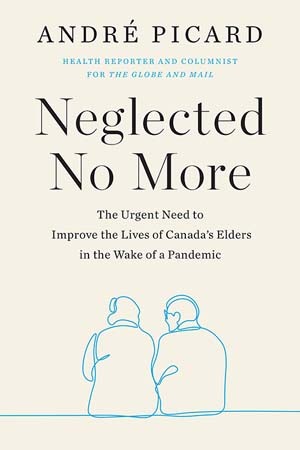

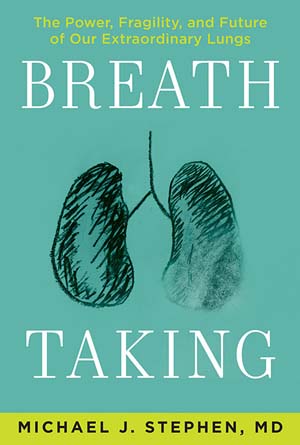
Neglected No More: The Urgent Need to Improve the Lives of Canada’s Elders in the Wake of a Pandemic, André Picard (Random House Canada, March)
The past year’s headlines around long-term care homes for elders have been stomach churning. Yet, the latest book from Globe and Mail health reporter and columnist Picard – a must-read source of COVID-19 news and opinion – is only partly a book about the tragedies wrought by the COVID-19 pandemic. Picard sounds the alarm for the shocking systemic neglect towards Canadian elders in a society that has embraced their mass institutionalization. He lays out what can and must be done to improve the quality of life and safety of our elders, including supports to age with dignity in their homes and communities.
Consent: A Memoir, Vanessa Springora (HarperVia, February)
A tale of publishing, abuse of power and stolen adolescence, this memoir of a French teenage girl’s relationship with a powerful, famous and decades-older male writer has already made big waves internationally. This edition is translated from French by Natasha Lehrer.
Breath Taking: The Power, Fragility, and Future of our Extraordinary Lungs, Michael J. Stephen (Grove /Atlantic, January)
Through an average 7.5 million breaths a year, our lungs form a bridge between our bodies and the outside world, yet we take them for granted until they become incapacitated. Pulmonologist Stephen shares his passion for and deep knowledge of this vital organ in this scientific, accessible book.
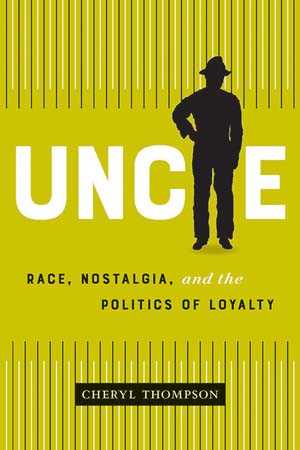

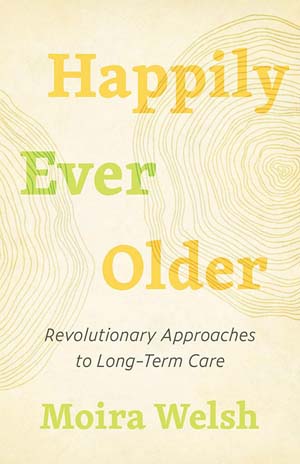
Uncle: Race, Nostalgia, and the Politics of Loyalty, Cheryl Thompson (Coach House Books, February)
Across two centuries of racial politics, the author traces the journey of “Uncle Tom” from literary character to racial trope, and, at a time when nostalgia is used as a political tool, makes a case for the necessity of understanding the history of such stereotypes.
Chiru Sakura – Falling Cherry Blossoms: A Mother and Daughter’s Journey through Racism, Internment and Oppression, Grace Eiko Thomson (Caitlin Press, March)
A Japanese-Canadian woman reflects on her family’s history through her own memories of being forcibly removed from Vancouver and ultimately settling in Winnipeg. Thomson’s memories are interwoven with the diary entries of her mother, who immigrated to Canada in 1930, in this delicate exploration of sharing trauma and hope across generations.
Happily Ever Older: Revolutionary Approaches to Long-Term Care, Moira Welsh (ECW Press, February)
Reporter Welsh takes readers on an international tour of long-term care homes to share vibrant and inspiring stories of seniors living with purpose, energy and love. This hopeful book about living arrangements is a necessary antidote to a year of tragic headlines and living in isolation.
